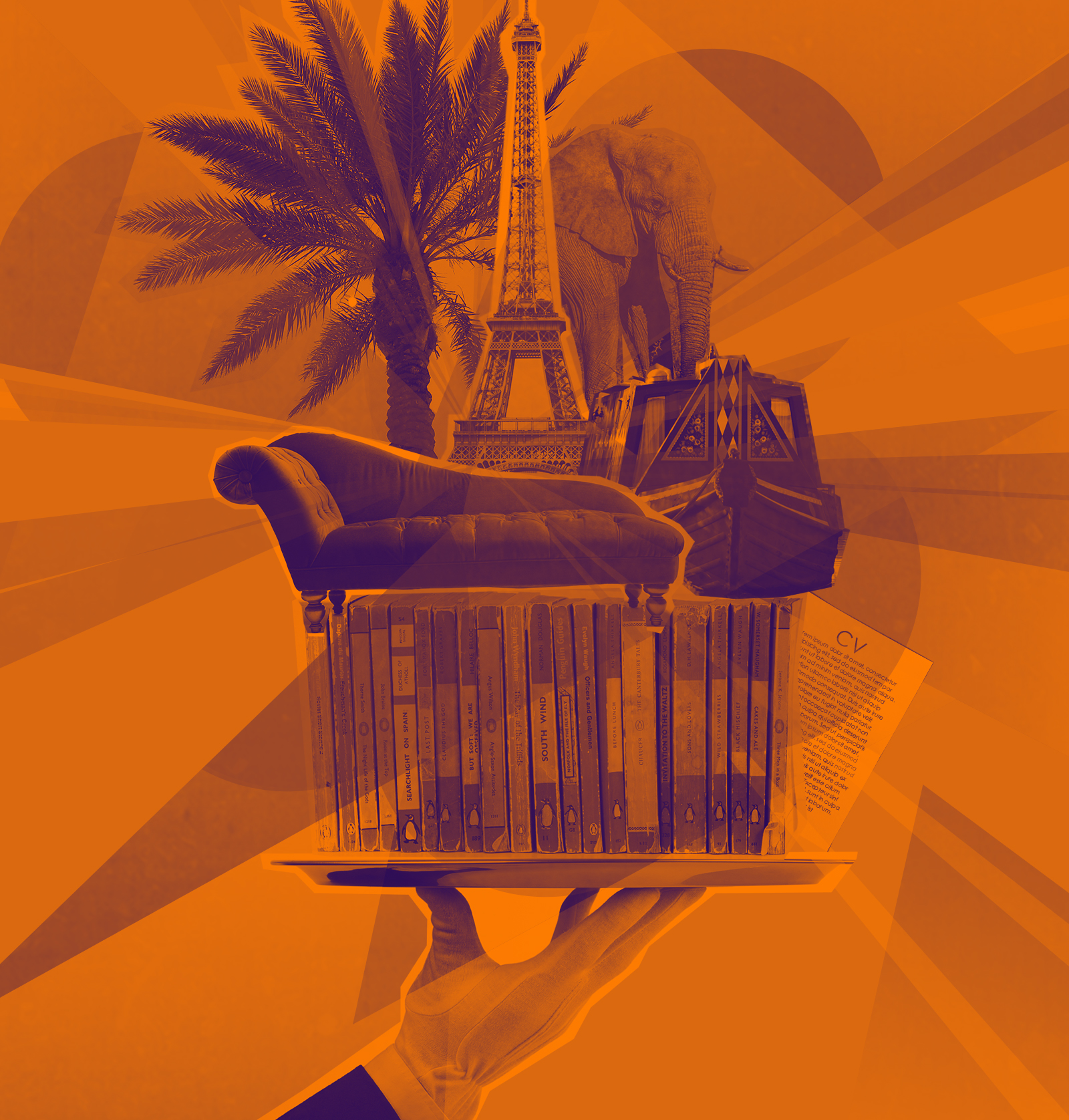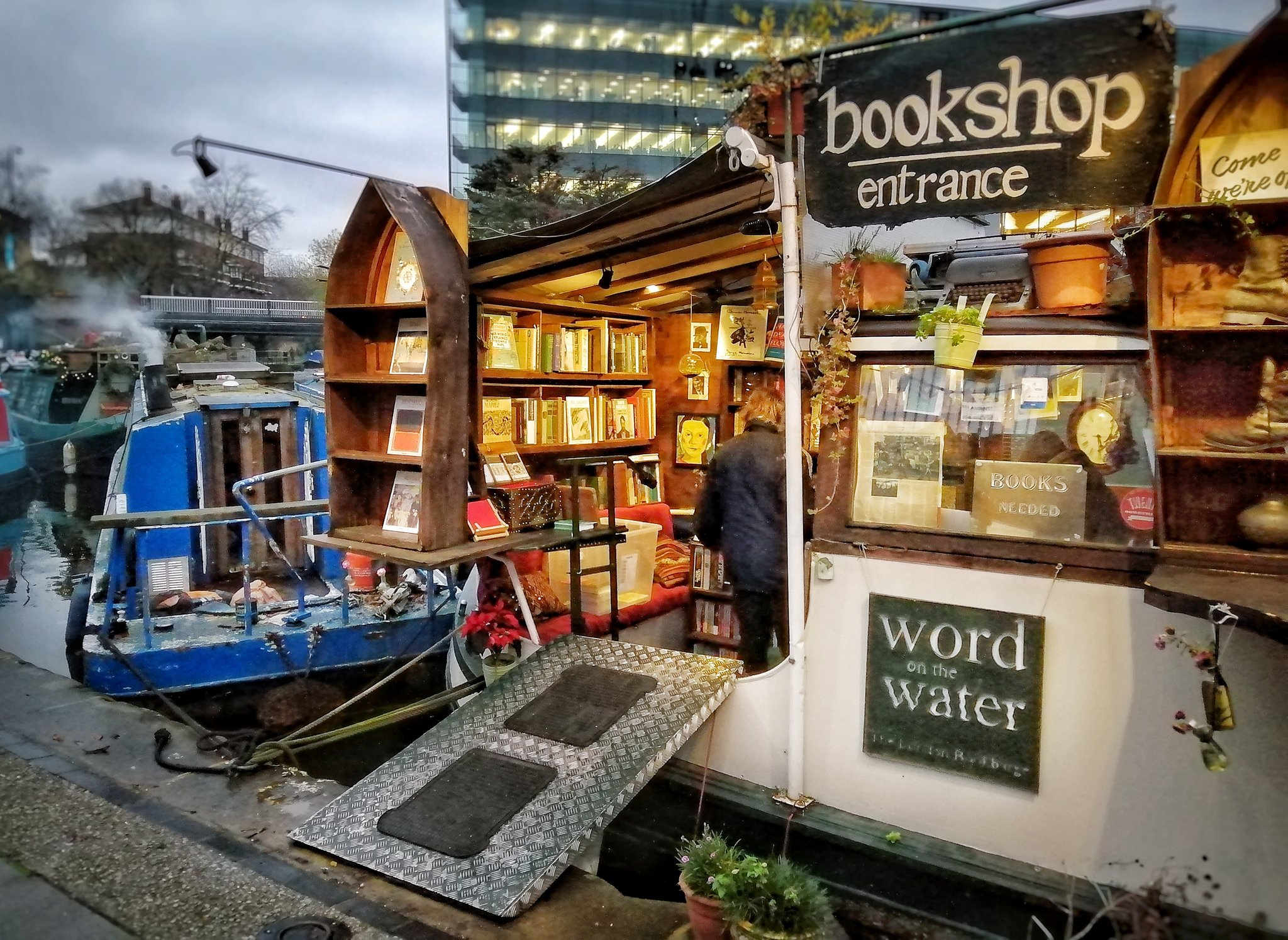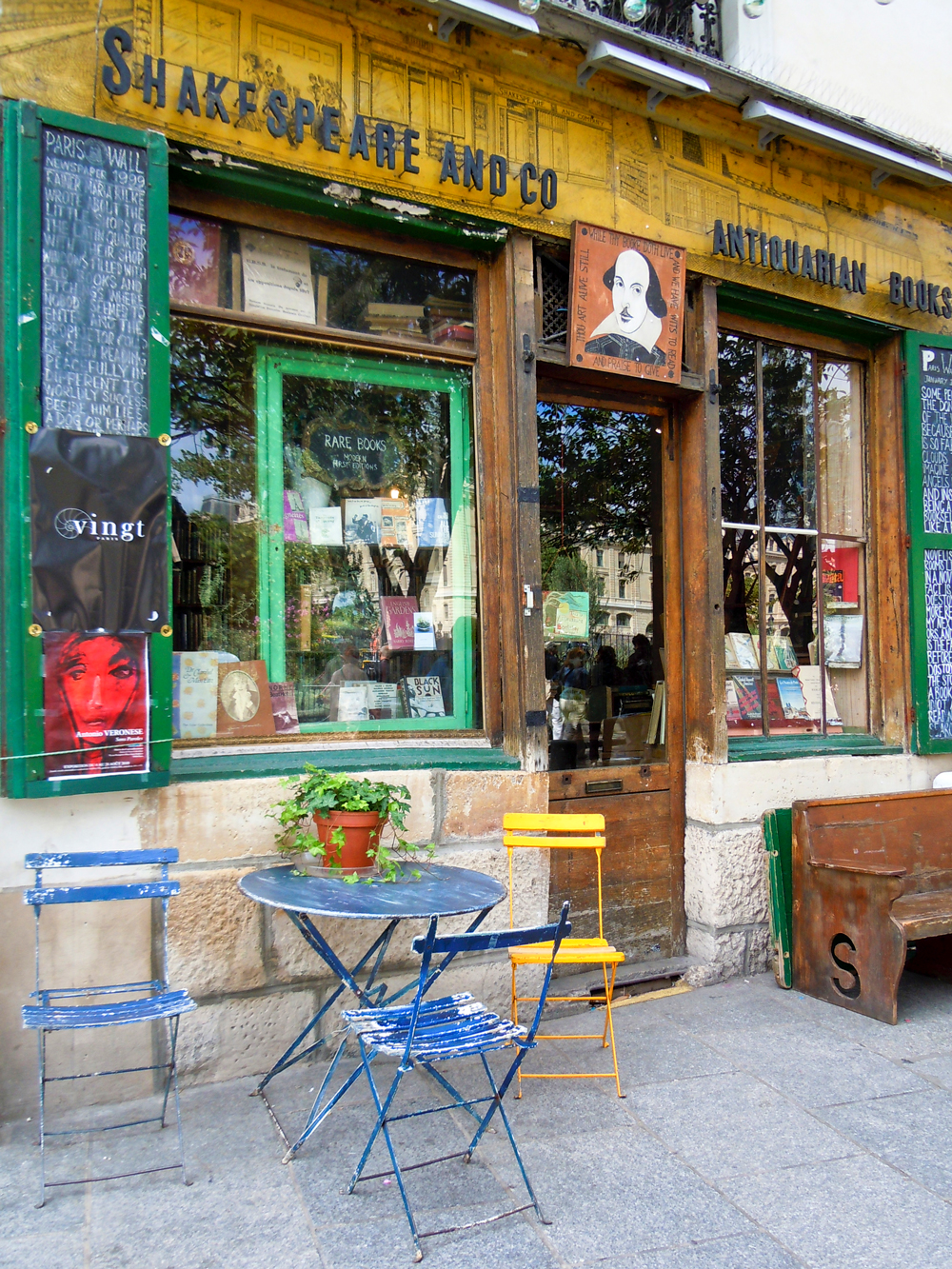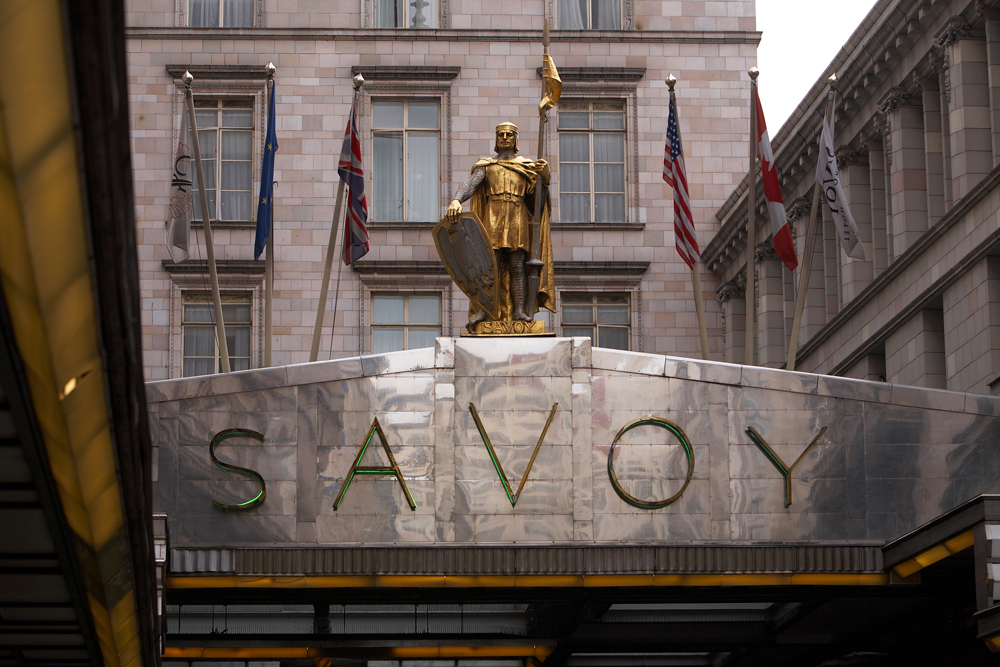- Home |
- Search Results |
- Dream jobs for book lovers, from Book Butler to Elephant Librarian

If you could do any job on earth, what would it be? You’re reading this, so we’re going to guess it might have something to do with books.
But don’t let’s settle for working in a bookshop or a library or even a publishing company like ours. Wonderful as those all are, let's dream really big.
Let's dream elephant big.
Mobile elephant librarian
Imagine being a librarian, but instead of a desk, you had a leathery elephant’s head. Instead of a swivel-chair, you had the undulating shoulders of a beast that mourns its dead and can distinguish between human voices. And instead of silence, you had the chirps and squawks of the jungle. Your job would still be to lend books, only to people who live in the furthest-flung reaches of southeast Asia, where only elephants can go.
'Instead of a desk, you'd have a leathery elephant’s head'
Mobile elephant libraries are real, and every day teams of dedicated librarians in Thailand and Laos climb onto them laden with books to deliver knowledge to places inaccessible to any other mode of transport.
They’re not so different, really, to the characters in Jojo Moyes’ brilliant novel The Giver of Stars, in which a group of intrepid women deliver books on horseback to the remotest areas of Kentucky in the 1930s (based on a true story). In both cases you'd be delivering books to people who wouldn't otherwise get them, while taking in some rather beautiful scenery.
Barge bookseller

Ratty was wrong. There is one thing half so worth doing as simply messing about in boats: reading in them. Few things compare to enjoying a favourite read to the sound of lapping water and rustling leaves while bobbing on a river. That, at least, is the philosophy of Word on the Water, London’s most famous floating bookshop.
The 50-foot-long 1920s Dutch barge was opened in 2011 by Paddy Screech, a social worker, and Jonathan Privett, a homeless street-stall bookseller. Now permanently-moored at Granary Wharf just around the corner from the British Library, its books are as cheap as its stove is warm. And their roof has an open mike for any musician or busker, and poetry slams and readings for which crowds have been known to block the entire towpath in the summer.
‘[Screech and Privett] run an easygoing operation,’ wrote the New York Times in 2017, ‘often not even monitoring customers who climb aboard the barge, but remaining in their folding lawn chairs out on the towpath.’
If Kenneth Grahame had written a book shop scene into Wind in the Willows, it probably would have looked a lot like this.
Bibliotherapist
We all know great stories are captivating. The best can spirit us into other worlds and away from our earthly worries. But have you ever had a Murakami massage? Or a Defoe detox? What about a Brontë brain cleanse? That’s to say, book medicine, aka bibliotherapy, is now a legitimate scientific practice. And, just like talking therapy, reading therapy is used to overcome all manner of common ailments, from the fear of attending a dinner party to pessimism to an unhealthy obsession with death.
'Have you ever had a Murakami massage or a Defoe detox?'
A bibliotherapist listens to people talking about what is going on in their lives, or asks them to fill in a questionnaire, delves into their childhood reading habits (a sensible route into any adult psyche) and then prescribes a reading cure.
It’s not a new discipline; the ancient Greeks practiced bibliotherapy (the world’s oldest library motto is believed to be, ‘the house of healing for the soul’). And, according to London-based bibliotherapist, Ella Berthoud: a novel, ‘when read at the right moment in your life … can – quite literally – change it.’
Be a Shakespeare and Company ‘Tumbleweed’

To work here is to rub shoulders with some of literature’s greatest ghosts. Ernest Hemingway, James Joyce, F Scott Fitzgerald and Gertrude Stein all came here as ex-pats in Paris’ halcyon 1930s. It was the first company to publish James Joyce’s Ulysses when nobody else would. It’s where William Burrows researched sections of Naked Lunch, and where Allen Ginsberg once stripped nude during a raucous public reading.
Originally founded by Sylvia Beach in 1919, in the 1950s the benches in the shop began to be transformed into beds where writers and artists are invited to sleep for free in exchange for helping out a few hours. They were also asked to write a one-page autobiography and promise to read a book a day. Post-war proprietor George Whitman called them ‘Tumbleweeds’.
‘I created this bookstore like a man would write a novel,’ he once said, ‘building each room like a chapter, and I like people to open the door the way they open a book, a book that leads into a magic world in their imaginations.'
Literary tour guide
What better way to follow in your literary heroes’ footsteps than to literally follow in their footsteps? Literary walking tours exist in cities all over the world. All you need is a sturdy knowledge of your subject and an even sturdier set of shoes.
Take, for instance, the Dublin Pub Crawl in which gab-gifted guides weave between watering holes in which ‘sacred pints unbound the tongues’ of such writers as James Joyce, Brendan Behan, Samuel Beckett and WB Yeats.
Then there’s the James Bond tour in London’s Mayfair, the Jane Austen tour in Bath and the Nordic noir tour in Copenhagen. For the more magically minded, Warner Bros. Studios employ a gaggle (or a muggle?) of what they call a Harry Potter ‘interactors’. This is probably the only actual job on earth in which Hogwarts obsessives can put all those hours of reading and re-reading the stories of Harry and chums to good, financial use every single day.
Desert island bookseller

In 2018, a job advertisement came up on the Ultimate Library website for ‘possibly the best job in the world for [lovers of] sun, sea, sand and, naturally, books!’. They were, in essence, looking for a Man Friday prepared to punt Daniel Defoe to present-day Robinson Crusoes on a luxury desert island resort. The job title: barefoot bookseller.
One lucky bibliophile would spend a minimum of three months running possibly the world’s most remote bookshop on the eco-resort of Soneva Fushi in the Maldives while writing ‘an entertaining and lively blog that captures the exhausting life of a desert island bookseller’.
If swimming with turtles and tropical fish, practicing yoga on ‘sand as soft as snow’, and reading for hours on deserted sandbanks while manning a bookshop made of trees sounds exhausting, imagine the morning commute (no need: it’s a 30-second bicycle ride through a tropical jungle)!
Savoy book butler

You won’t have to polish silver, handle dirty laundry or comfort weeping debutantes over spilled blueberries on ballgowns. No cork popping, no shoe-shining, no yessirring and certainly no after-hours shopping for chocolate treats or other appurtenances of the night. No, you only have to read books and recommend them to clients, based on their tastes, and yours.
'It is not made clear whether book butlers are expected to read the books to sleepy guests at bedtime'
London’s Savoy is one of the world’s few hotels that employs a ‘book butler’ (the Athenaeum private members club on Pall Mall is another) ‘Overseeing a collection of 40 titles presented in a beautifully illustrated library menu,’ the Savoy announced on its website after launching the ‘first-of-its-kind’ service in February. ‘Savoy Book Butlers will be on hand to accommodate suite guests’ literary needs.’
It is not made clear whether or not book butlers are expected to read the books to sleepy guests at bedtime. But it probably wouldn’t hurt to practice one’s diction, just in case.